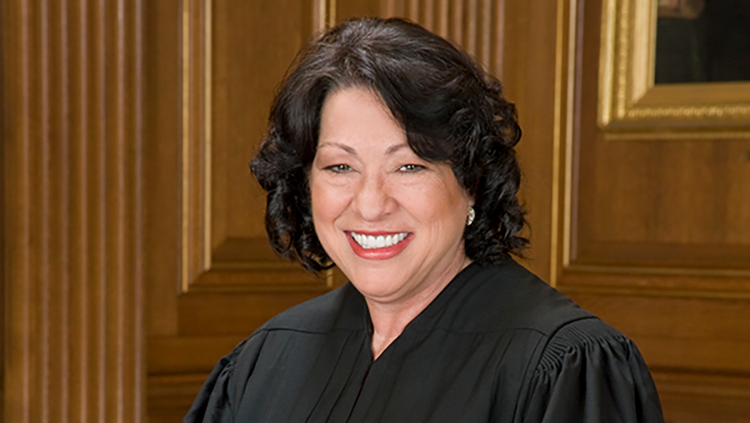Sotomayor expresses 'deeply troubling concern' about solitary confinement in cert denial

Justice Sonia Sotomayor. Supreme Court of the United States.
Justice Sonia Sotomayor on Tuesday expressed “deeply troubling concern” about solitary confinement conditions that deny prisoners “even a moment in daylight for months or years.”
Sotomayor writes about her “deep misgivings” in a statement on the denial of certiorari in a case alleging Eighth Amendment violations at the Colorado State Penitentiary, where inmates in solitary confinement were not allowed to exercise outside. “A punishment need not leave physical scars to be cruel and unusual,” she writes. (Her statement begins at page 15.)
Sotomayor says she agrees with the denial of cert “because of arguments unmade and facts underdeveloped below.”
“I write to note, however, that what is clear all the same is that to deprive a prisoner of any outdoor exercise for an extended period of time in the absence of an especially strong basis for doing so is deeply troubling—and has been recognized as such for many years.”
Colorado recently revised its regulations to allow inmates access to outdoor recreation for at least one hour, three days a week, subject to security or safety considerations. The three petitioners, however, were incarcerated when the prison allowed one hour of exercise a week in a room of about 90 square feet that was empty except for a chinup bar. Their only out-of-cell exercise was in that room from periods ranging from 11 to 25 months.
One of the petitioners evidently spent 11 years in solitary confinement after he was convicted of second-degree burglary and introduction of contraband. He was released from prison in July 2015 and died in May 2018. “While we do not know what caused his death,” Sotomayor writes, “we do know that solitary confinement imprints on those that it clutches a wide range of psychological scars.”
Sotomayor refers to Charles Dickens’ portrayal of solitary confinement in A Tale of Two Cities and notes Dickens had observed prisoners in solitary confinement during an 1842 visit to a Philadelphia prison. The novelist likened the experience to a “man buried alive.”
Dickens had concluded that penal officers didn’t recognize the torture and agony of solitary confinement, Sotomayor writes. “We are no longer so unaware,” Sotomayor says. “Courts and corrections officials must accordingly remain alert to the clear constitutional problems raised by keeping prisoners” like the petitioners in near-total isolation “in what comes perilously close to a penal tomb,” she writes.
The cases are Apodaca v. Raemisch and Lowe v. Raemisch.
Write a letter to the editor, share a story tip or update, or report an error.


